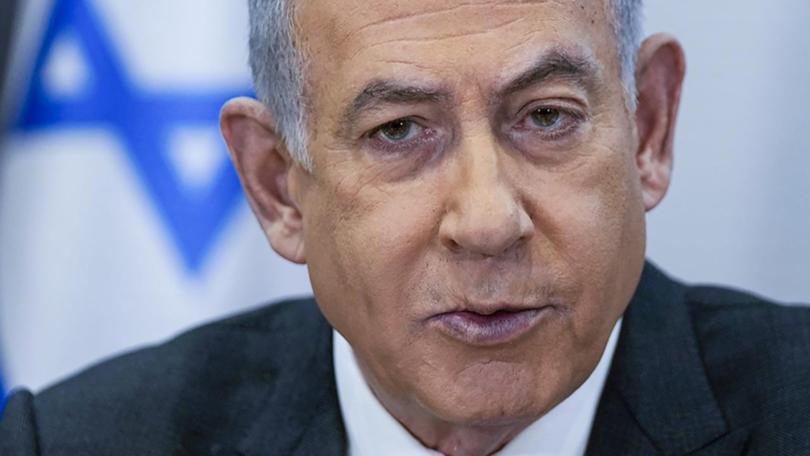Israeli Prime Minister Benjamin Netanyahu says conditions for Gaza ceasefire 'ripening'
Israeli Prime Minister Benjamin Netanyahu has told families of hostages held in the Gaza Strip that a deal that would secure their release could be near.

Israeli Prime Minister Benjamin Netanyahu has signalled that a ceasefire deal that would free dozens of hostages from captivity in the Gaza Strip could be taking shape.
In a meeting late on Monday in Washington DC with families of hostages, Netanyahu said the conditions to bring the captives back were “ripening,” according to a statement from his office.
He said that was happening because of the fierce military pressure Israel was putting on Hamas.
Sign up to The Nightly's newsletters.
Get the first look at the digital newspaper, curated daily stories and breaking headlines delivered to your inbox.
By continuing you agree to our Terms and Privacy Policy.He gave no further details on the deal’s progress.
For weeks, Israel and Hamas have been weighing a United States-backed truce deal that would bring a halt to the nine-month war and free the roughly 120 hostages taken by Hamas during its October 7 attack.
About one-third of the hostages are said to be dead and Israel’s military said on Monday that two more died in captivity.
Netanyahu faces intense pressure from a broad swath of Israelis to agree to the deal.
He has vowed to defeat Hamas before stopping the war, a term that has been a main sticking point throughout the negotiations.
The families of hostages had demanded that Netanyahu nail down a deal before flying to the United States, where he will address Congress and is expected to meet President Joe Biden and Republican presidential candidate Donald Trump.
Palestinian residents of eastern neighbourhoods of Khan Younis in the southern Gaza Strip fled their homes on Tuesday as Israeli tanks advanced deep into the area after Israeli forces ordered the population to leave.
The tanks pushed into the Khan Younis town of Bani Suhaila and several districts nearby were bombed for a second day, forcing tens of thousands of civilians to seek refuge elsewhere.
Israel said its action - the latest in a series of major assaults in recent weeks in parts of Gaza where it had long since claimed to have rooted out Hamas - was intended to prevent the militant group’s fighters from regrouping.
Gaza health officials said Israeli military strikes since Monday killed at least 80 Palestinians in the Khan Younis area - adding to a death toll of more than 39,000 in nearly 10 months of warfare, according to Gaza authorities’ figures.
The Israeli military said Hamas and other groups used those areas to renew attacks, including firing rockets.
Many of the newly displaced families said they had to spend the night in the streets as they searched in vain for a space as western Khan Younis and central Gaza areas were overcrowded.
Some of them said they had to flee under Israeli fire.
“For us, the most basic of essentials in our lives are not available,” a woman, Ibtihal al-Breim, told Reuters in Khan Younis.
“Basic needs (like) water which we had to carry, the electricity, of course, is cut off, food is cut off, let alone the expensive prices, and there’s no work.”
“And then suddenly you’re told now you have to leave. Without prior warning, suddenly rockets began falling on us. We had to leave and I wasn’t intending to leave - but then there were quadcopters and aircraft, we saw the tanks with our own eyes,” she added.
United Nations officials described scenes of despair on Tuesday as Israeli air strikes hit the area.
“The situation is impossible,” the UN’s Palestinian refugee agency UNRWA said on X.
In a later post, it said there was nowhere safe to go in Gaza.
“People are exhausted from the continuous displacement and unliveable conditions & they are trapped in increasingly small and overcrowded areas,” it said.
The Israeli military said dozens of militants had been killed in Khan Younis by its tanks and warplanes or in close-quarter combat.
Weapon caches and tunnels used by the militants had been destroyed, it said.
with AP
